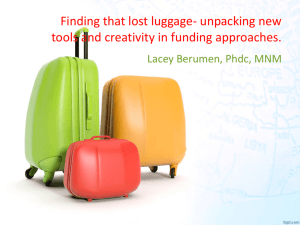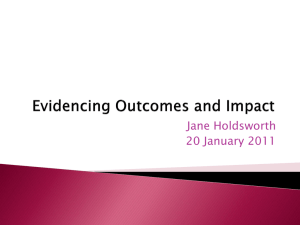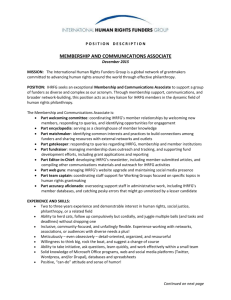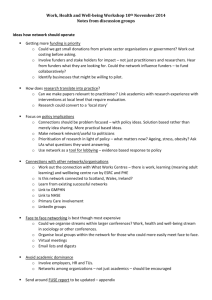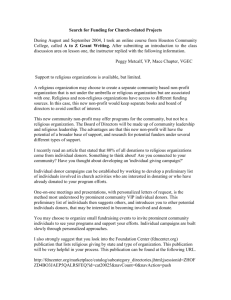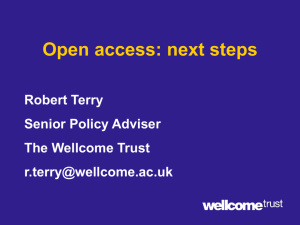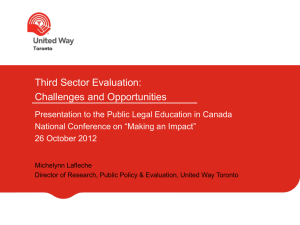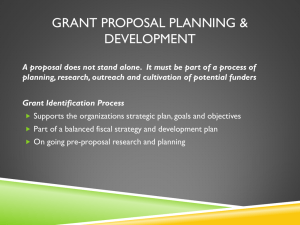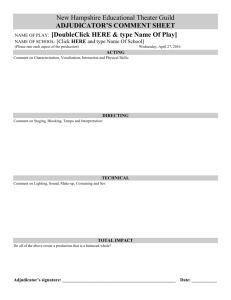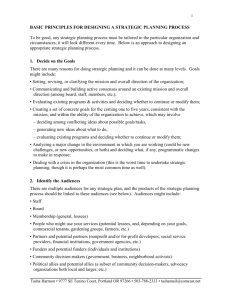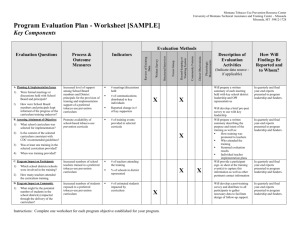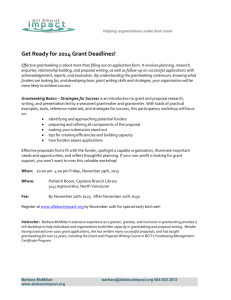Recap Notes from Open Source Philanthropy
advertisement
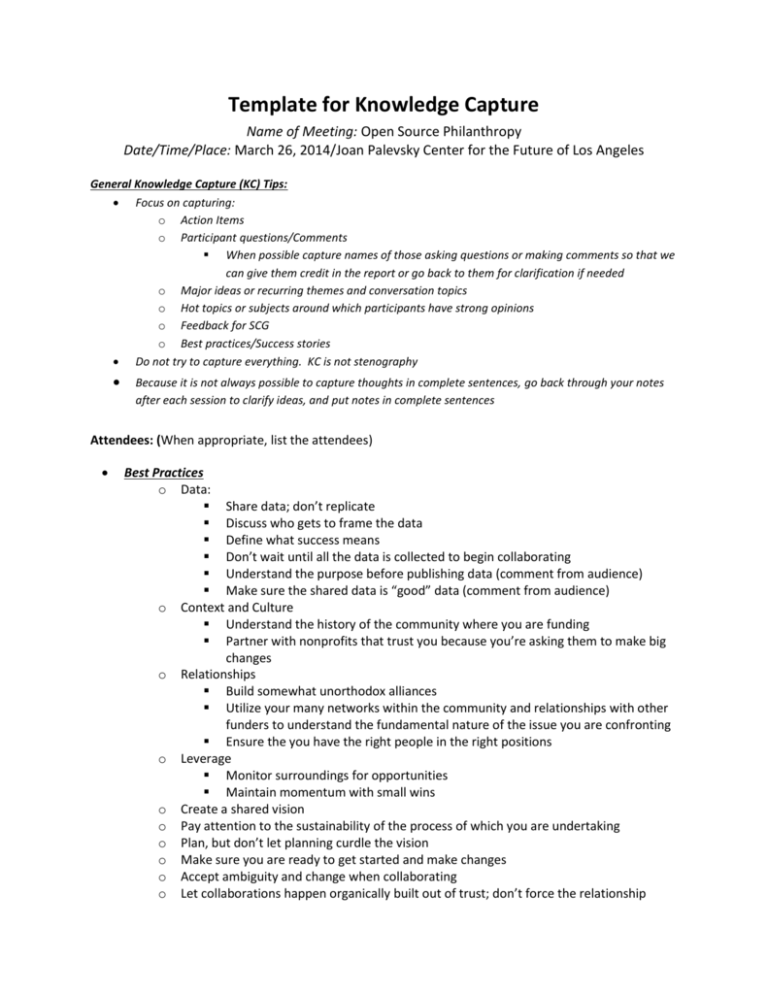
Template for Knowledge Capture Name of Meeting: Open Source Philanthropy Date/Time/Place: March 26, 2014/Joan Palevsky Center for the Future of Los Angeles General Knowledge Capture (KC) Tips: Focus on capturing: o Action Items o Participant questions/Comments When possible capture names of those asking questions or making comments so that we can give them credit in the report or go back to them for clarification if needed o Major ideas or recurring themes and conversation topics o Hot topics or subjects around which participants have strong opinions o Feedback for SCG o Best practices/Success stories Do not try to capture everything. KC is not stenography Because it is not always possible to capture thoughts in complete sentences, go back through your notes after each session to clarify ideas, and put notes in complete sentences Attendees: (When appropriate, list the attendees) Best Practices o Data: Share data; don’t replicate Discuss who gets to frame the data Define what success means Don’t wait until all the data is collected to begin collaborating Understand the purpose before publishing data (comment from audience) Make sure the shared data is “good” data (comment from audience) o Context and Culture Understand the history of the community where you are funding Partner with nonprofits that trust you because you’re asking them to make big changes o Relationships Build somewhat unorthodox alliances Utilize your many networks within the community and relationships with other funders to understand the fundamental nature of the issue you are confronting Ensure the you have the right people in the right positions o Leverage Monitor surroundings for opportunities Maintain momentum with small wins o Create a shared vision o Pay attention to the sustainability of the process of which you are undertaking o Plan, but don’t let planning curdle the vision o Make sure you are ready to get started and make changes o Accept ambiguity and change when collaborating o Let collaborations happen organically built out of trust; don’t force the relationship o Funders are most effective when they solicit feedback from their grantees Key Takeaways o What serves as a solution in one place does not necessarily work in another location o A lot of collaboration work takes place in a grey area—foundations must be comfortable working with ambiguity o In order to solve “wicked” problems, multiple theories of change must be utilized—one isn’t enough to tackle complex problems such as poverty or violence o “Wicked” problems require dynamic policy theories and porous boundaries (i.e. fluidity) o Council on Foundations has GIS mapping tool to inform other funders which foundations are funding certain program areas across the country o Consider who cares enough about the issue outside of the philanthropic sector to support the cause o Organic collaboration process: start with knowledge sharing (aggregate and searchable), and then move further toward coordinating, co-investing, etc. o It’s important to utilize the benefits of technology, but it’s not the answer to the problem o Funders need to be transparent and open with information, especially to those affected by the problem o As a funder, consider if you are willing to listen, especially to those affected by the problem Major Challenges o Funders have limited flexibility compared to nonprofits due to factors such as donor intent o The philanthropic sector’s inability to speak with a single, clear voice (comment from audience based on experience in DC) o Should one organization take the lead? Who out of the collaborative will make sure things move forward? Comment from audience—it seems counterintuitive that there is a leader in a collaboration Response—consider the structure prior to starting; ask the question if there needs to be a boss; address it o Is a new system necessary so that individual data can “talk to each other”? (question from audience) Second comment—simply putting information on your website is not sharing data; a more complex strategy is necessary Major Solutions o Create a narrative to communicate the work of philanthropy o Use communication vehicles in order to be more transparent o Be willing to work with ambiguity o Be open to building unlikely alliances o Allow collaborations to form organically from trust o Utilize networks within the community and relationships with funders to understand the complexity and contextual history of the wicked issue within a specific community Action Items for Participants o At a minimum, share knowledge and information o Support a sharing infrastructure and/or provide funding for o Continue the conversation o Potential starting points for collaborating: Open data Shared metrics Systematic communities of learning Any Action Items/Next Steps for SCG: Scan the horizon and announce upcoming opportunities for funders to come together on certain issues Assist in facilitating future conversations by providing space and a forum Consider offering a technology platform to assist in sharing information
